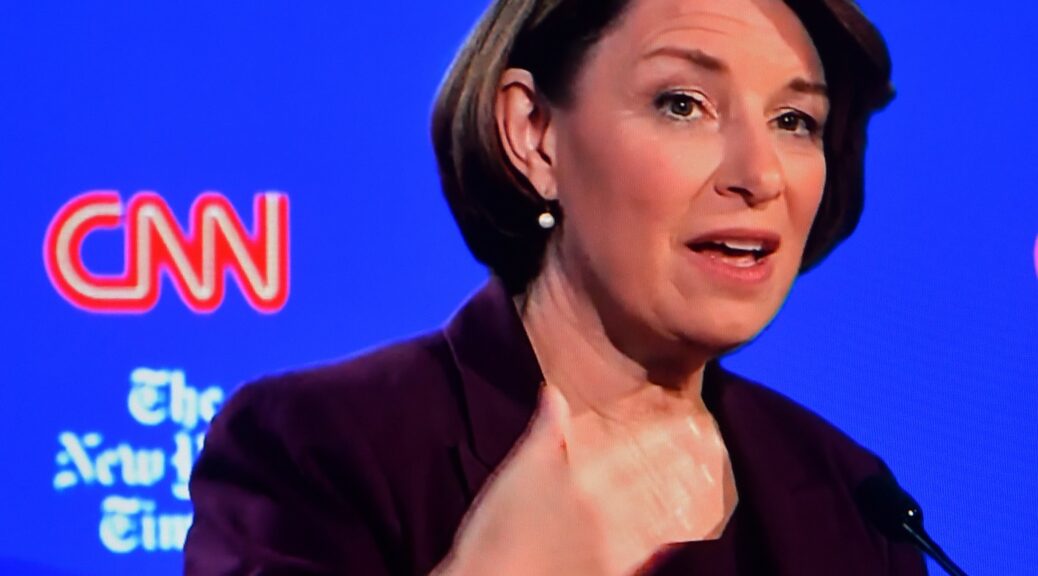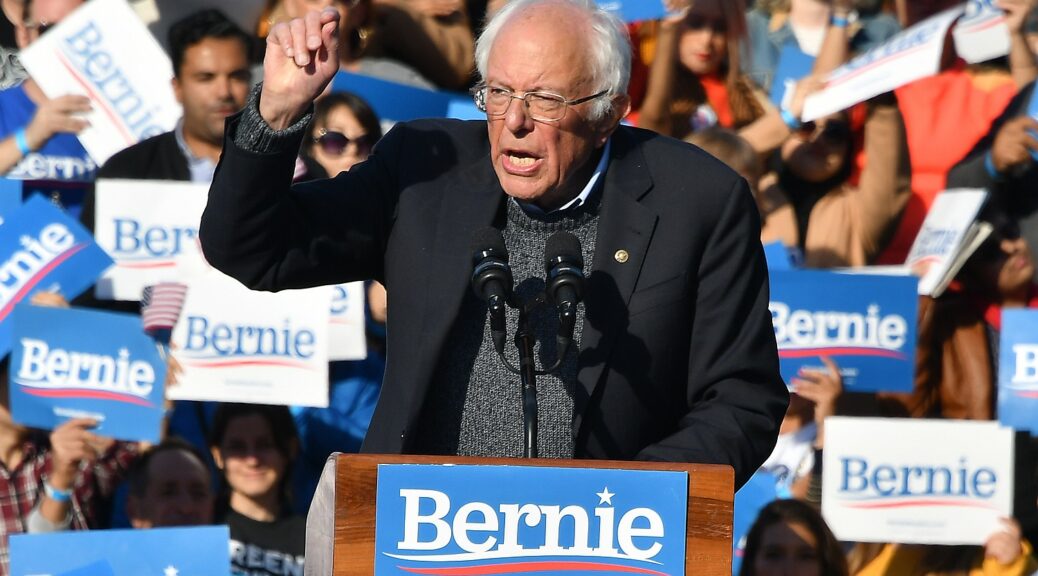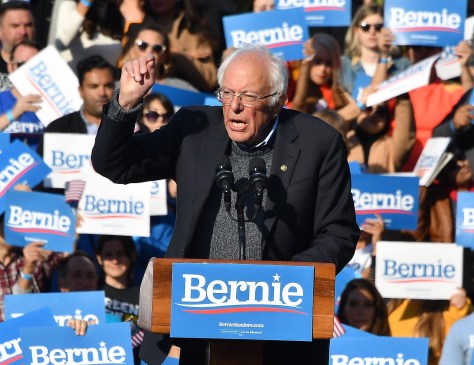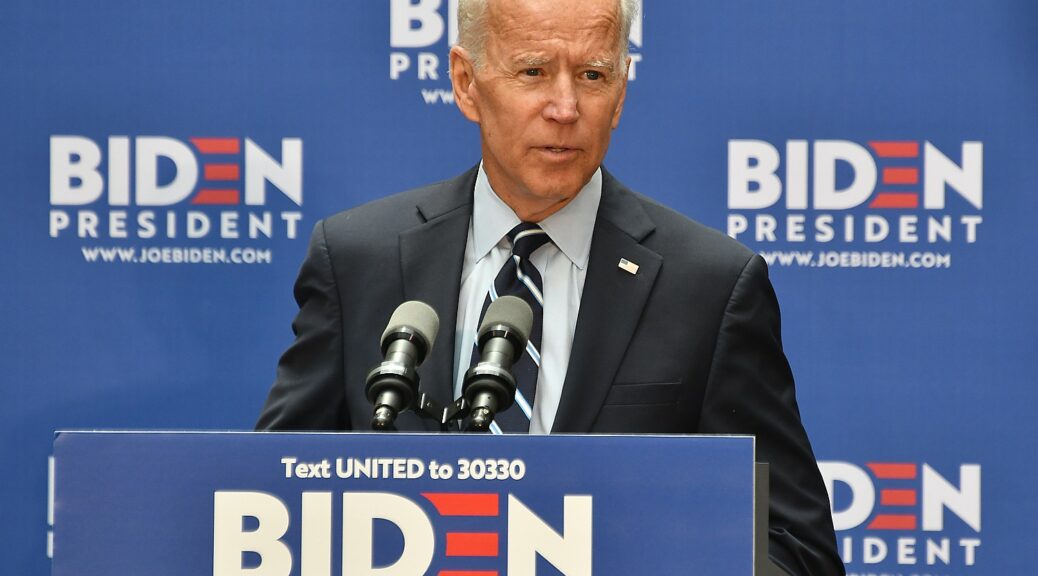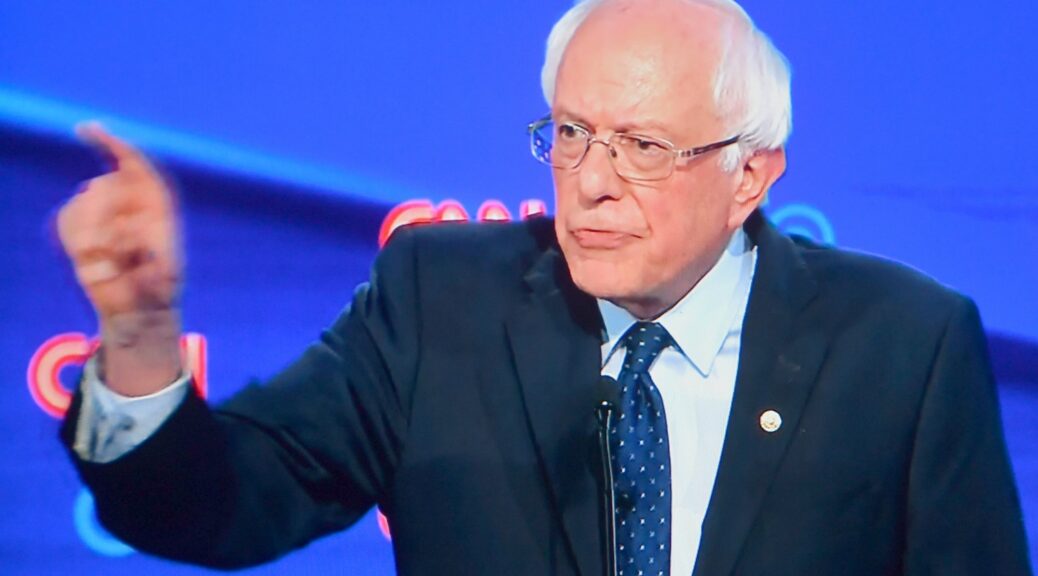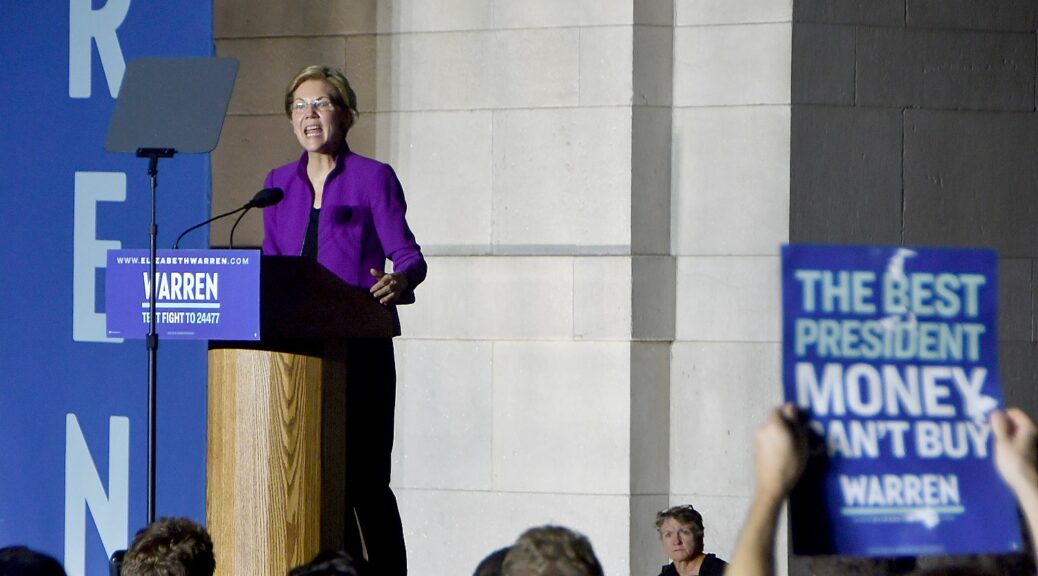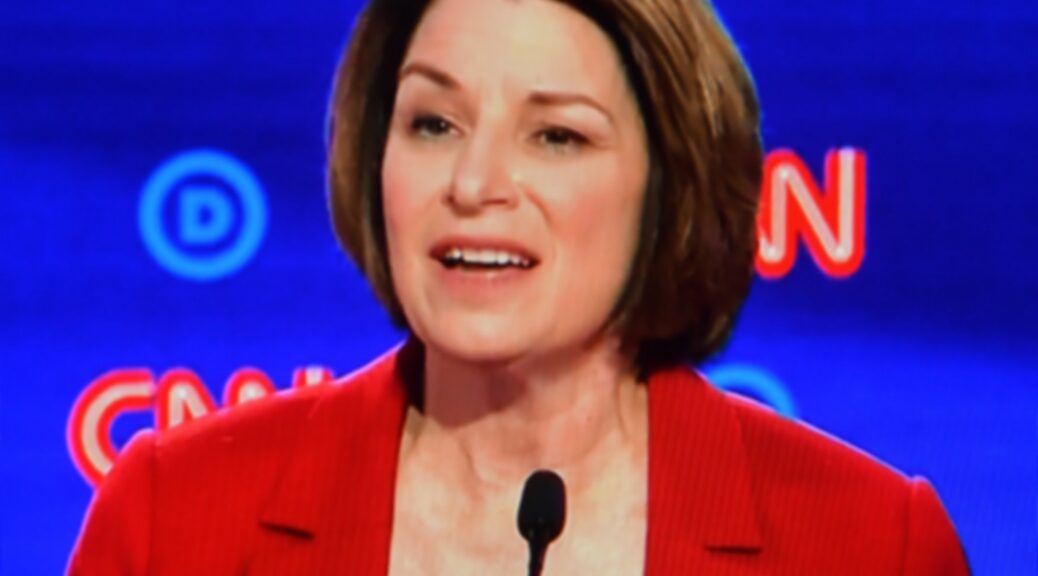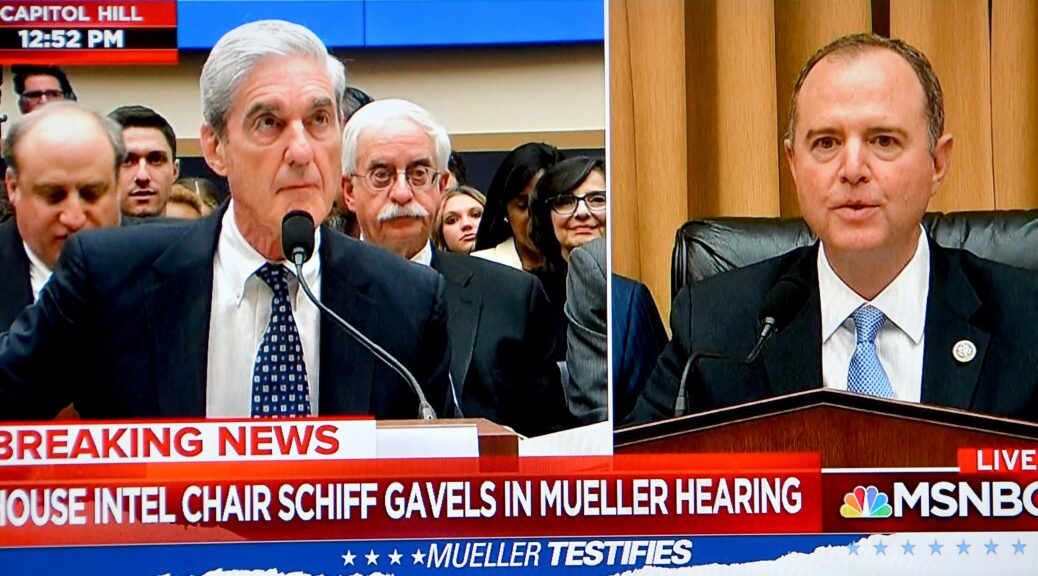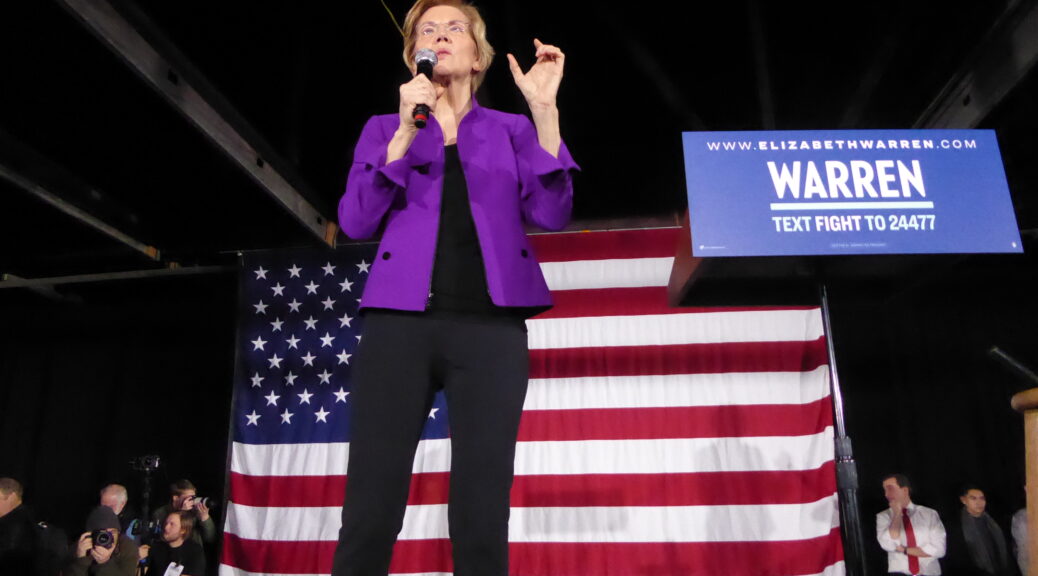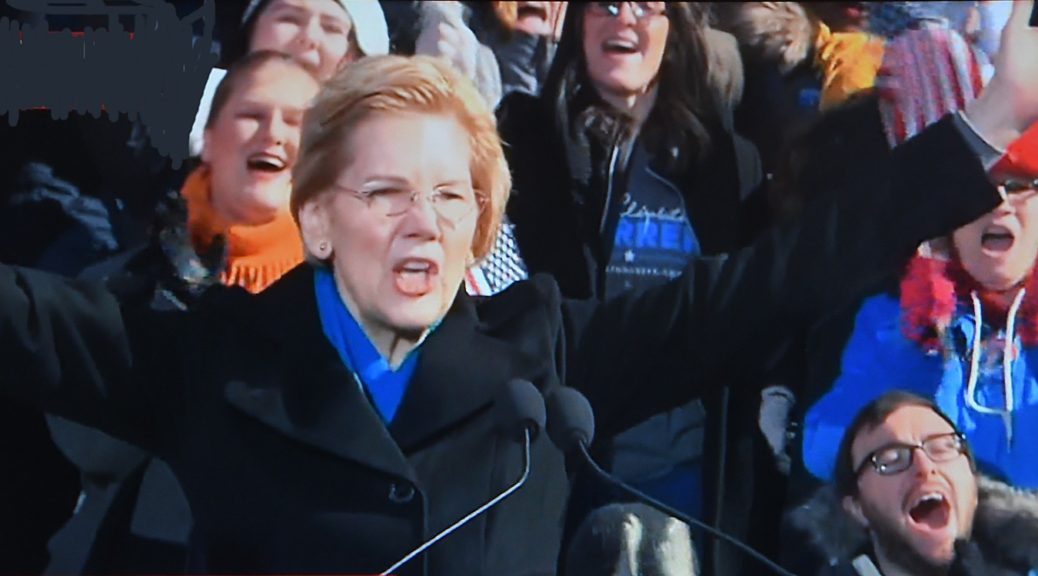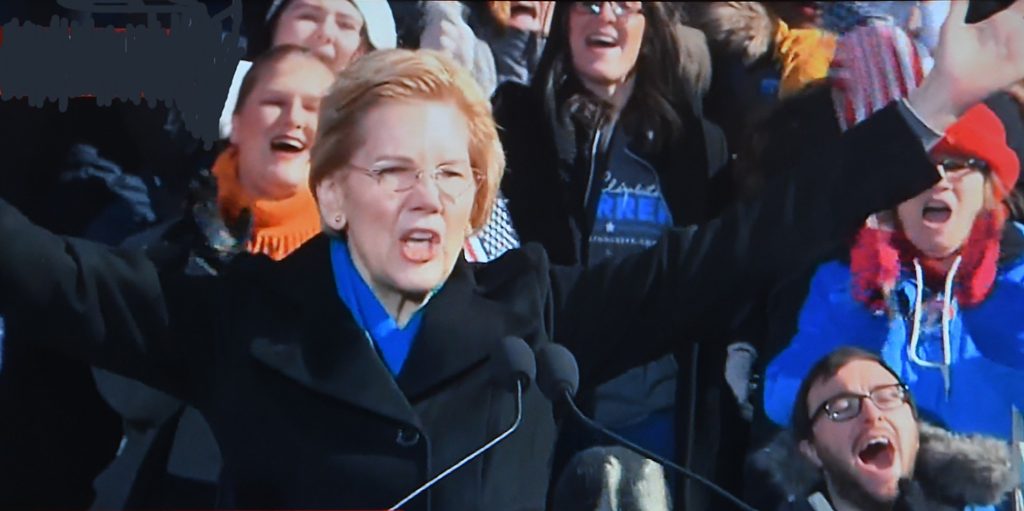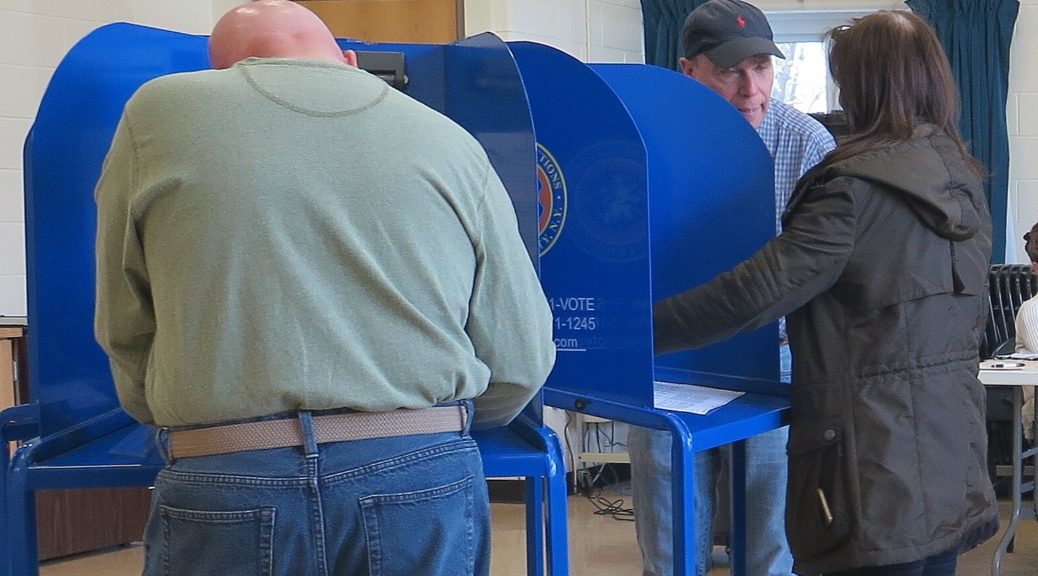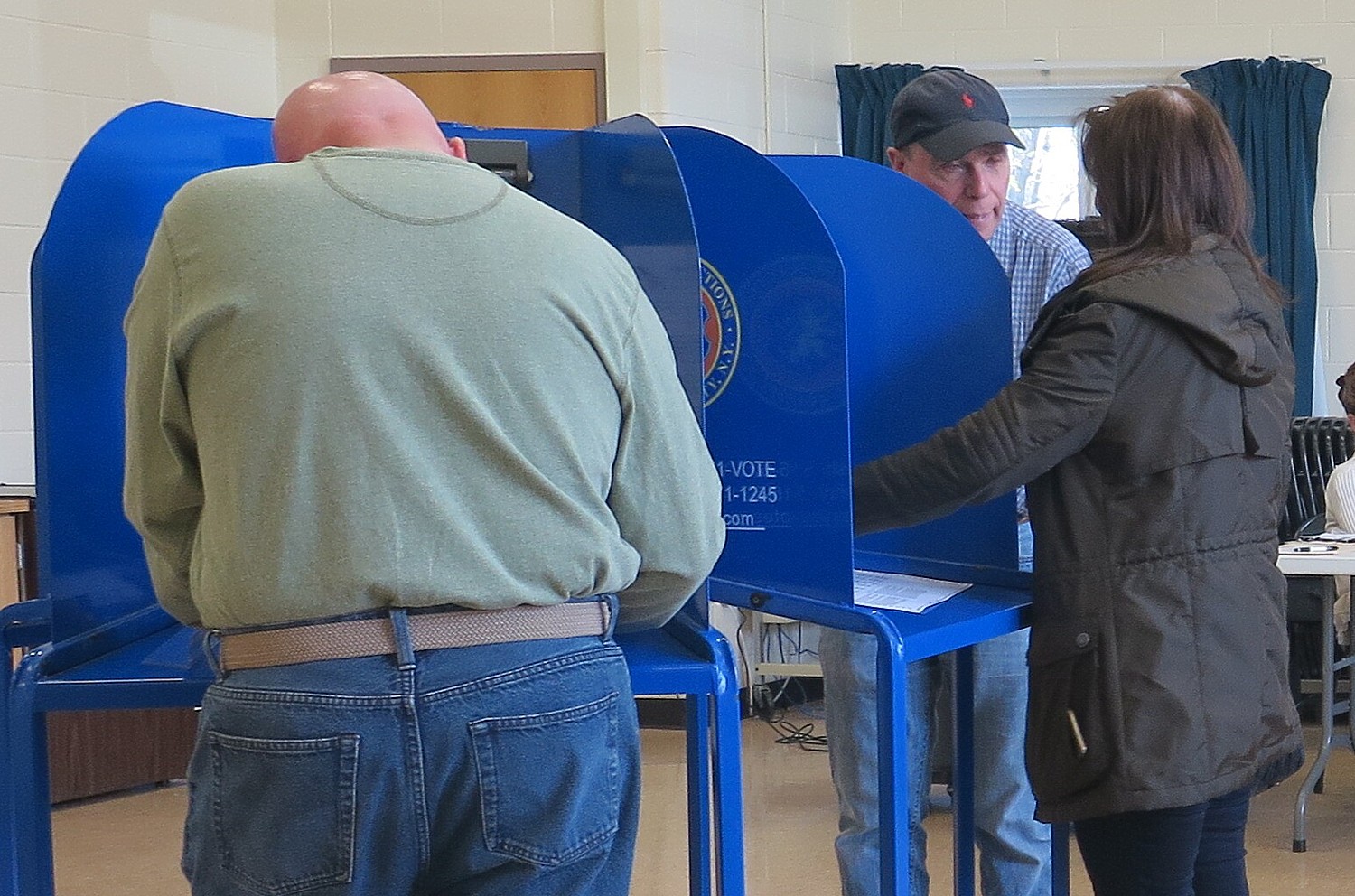
The vigorous contest of Democrats seeking the 2020 presidential nomination has produced excellent policy proposals to address major issues. In light of the threats to free and fair elections posed by Russian hacking, foreign interference, gerrymandering, Citizens United and voter suppression, and the impeachment proceedings unnerving public trust in government, Senator Amy Klobuchar has released her plan to safeguard elections, strengthen democracy and restore trust in government. This is from the Klobuchar campaign:
Senator Amy Klobuchar released her plan to safeguard our elections, strengthen our democracy and restore trust in government.
Senator Klobuchar believes that everything we talk about getting done – from taking on climate change to gun safety to health care reform — will depend on one thing: a democracy that works for the people and making sure every vote counts.
Today insidious forces are working to suppress the vote and drown out people’s voices with dark money. And our intelligence agencies have confirmed time and time again that there have been foreign attacks on our elections, and that our elections remain a target. Republicans in the Senate have repeatedly blocked Senator Klobuchar’s bipartisan legislation to strengthen our election security while our country faces continued threats from foreign adversaries.
Senator Klobuchar believes it’s time to take back our democracy. She has been a leader in the fight to protect our elections from foreign interference, including by securing $380 million in election security funds in 2018 so states could improve their election infrastructure and protect their election systems from cyberattacks. She leads bipartisan legislation in the Senate that would protect our elections with paper ballots and post-election audits, as well as the bipartisan legislation that would promote accountability and transparency for political ads on the internet.
Senator Klobuchar is also leading the effort in Congress to automatically register every American to vote when they turn 18, and she has fought for the passage of legislation that would restore the Voting Rights Act to take on discrimination at the polls. And she has worked to get dark money out of politics and restore trust in government dating back to her first month as a Senator, when she helped lead the successful push for meaningful ethics reform in Congress.
As President, Senator Klobuchar will champion a major voting rights and democracy reform package and she has already pledged that the For the People Act — legislation that has thirteen of Senator Klobuchar’s legislative provisions — will be the first bill she sends to Congress as President.
Strengthening Election Security and Regulating Online Political Ads
Promote accountability for political ads on the internet. Senator Klobuchar wrote and introduced the bipartisan Honest Ads Act, which would increase transparency and accountability for political ads on the internet by holding large online platforms to the same disclosure and disclaimer standards that apply to radio, broadcast, cable and satellite providers. As President, Senator Klobuchar will push to pass the Honest Ads Act, work to pass the PAID ADs Act — which she leads in the Senate — to make it illegal for foreign nationals to purchase election ads, and work to ban foreign nationals from involvement in decisions regarding political expenditures by corporations, PACs and Super PACs. She will work to prohibit online platforms from allowing political ads that discriminate against people and require online platforms to use human reviewers to approve political ads placed on their platforms. Today, there are no protections preventing misleading and outright false political ads online. That’s why Senator Klobuchar supports preventing social media companies from running political ads full of false claims and lies by holding them responsible.
Take on disinformation campaigns and foreign efforts to influence our elections. As President, Senator Klobuchar will require political campaigns to report any attempt by a foreign entity to influence our elections to the Federal Election Commission and Federal Bureau of Investigation. She will also prohibit U.S. political campaigns from offering non-public material to foreign entities. Senator Klobuchar will work to pass legislation based on the Deceptive Practices and Voter Intimidation Act, which she leads with Senator Cardin, to make it illegal to knowingly deceive others about how to participate in a federal election and to direct the Attorney General to work with states to counter voter intimidation. She will invest in media literacy education to teach students how to identify misinformation online, based on her Digital Citizenship and Media Literacy Act. Finally, she will work to pass the Combatting Foreign Influence Act, which she leads in the Senate, to direct the Director of National Intelligence to establish a Malign Foreign Influence Response Center to coordinate work across the intelligence community and law enforcement to assess foreign influence operations with a whole-of-government approach.
Build U.S. cyber expertise to defend our elections. As President, Senator Klobuchar will make cybersecurity an immediate priority. She will issue an Executive Order launching government-wide cybersecurity initiatives, fast-tracking and streamlining procurement of modern information technology across agencies. She will launch a cabinet-level taskforce on election cybersecurity to coordinate across agencies, including the intelligence community, on how the federal government can work with state and local governments to address cyber threats to our democracy and infrastructure. She will also work to pass legislation based on the Invest in Our Democracy Act, bipartisan legislation she leads in the Senate, to provide grants to states for election officials to receive continuing education in cybersecurity and election administration.
Fortify state election infrastructure against cyberattacks. Senator Klobuchar leads the effort to require all jurisdictions to have paper ballots through her Election Security Act, but Senator McConnell and the White House have prevented the bill from coming to a vote. She also led the successful effort to secure $380 million for State Election Security Grants in 2018. As President, Senator Klobuchar will require states to use paper ballots, set strong cybersecurity standards for voting infrastructure, increase grants to states for upgrades to their voting infrastructure and promote the use of post-election risk-limiting audits. These proposals are based on Senator Klobuchar’s legislation, Senator Wyden’s Protecting American Votes and Elections Act of 2019, which Senator Klobuchar co-sponsors in the Senate, and the SAFE Act, which passed the House in June 2019. She will also require the Director of National Intelligence to assess election threats and work with the Department of Homeland Security and Election Assistance Commission to provide assistance to states to counter those threats.
Eliminating Obstacles to Voting and Making It Easier to Vote
Automatically register every American when they turn 18. Senator Klobuchar believes we must do more to reduce barriers to voting. In the Senate, she has championed the Register America to Vote Act to automatically register all eligible citizens on their eighteenth birthday and she will get it passed as President. Automatically registering voters in every state would result in 22 million newly registered voters in just the first year of implementation, according to the Center for American Progress. Senator Klobuchar will also launch a pilot program to provide resources for initiatives that provide 12th graders with voter registration information. This proposal is based on the Students VOTE Act, legislation Senator Klobuchar leads in the Senate.
Restore the Voting Rights Act. Senator Klobuchar has long advocated for Congress to take action to address the U.S. Supreme Court’s 2013 decision in Shelby County v. Holder, which struck down key parts of the Voting Rights Act. As President, she will restore protections for voters in states with a recent history of discrimination. Senator Klobuchar will also champion the Native American Voting Rights Act, legislation she helps lead in the Senate, to provide the necessary resources and oversight to ensure Native Americans have equal access to the ballot box and the electoral process.
Prohibit voter purges and remove exact-match requirements. Senator Klobuchar has pushed to protect the constitutional rights of Americans from voter purges, which disproportionately impact minority, low-income, disabled, and veteran voters. In Georgia, former Secretary of State Brian Kemp purged over 1.4 million voters from the rolls and held up the voter registrations of 53,000 people because of things like a discrepancy over a hyphen in a last name. As President, Senator Klobuchar will pass her bill with Senator Brown, the SAVE Voters Act, to prohibit states from purging Americans from voter rolls for not voting in recent elections. The bill amends the National Voter Registration Act to prevent a state from using someone’s failure to vote or respond to a state notice as reason to target them for removal from voter rolls. Senator Klobuchar will also work with Congress to pass legislation requiring states to remove “exact-match” requirements and other unnecessary and discriminatory obstacles to registering to vote.
Break down institutional barriers to voting. Senator Klobuchar believes we must do more to make it easier for Americans to vote — not harder. As President, she will champion reforms to break down institutional barriers to voting, including:
Promote early voting and no-excuse absentee voting. Nine states do not offer early voting and in 19 states an excuse is required to vote absentee. Senator Klobuchar will push to make voting more convenient and support voter participation by working with states to establish early voting and no-excuse absentee voting nationwide.
Establish minimum notification requirements for voters affected by polling place changes. Senator Klobuchar will stand up to attempts to suppress voter turnout by requiring states notify voters affected by polling place changes no later than seven days before the date of the election or the first day of an early voting period.
Designate election day as a federal holiday. Senator Klobuchar will designate election day as a federal holiday.
Establish Same Day Registration. In addition to championing her legislation to automatically register every American when they turn 18, Senator Klobuchar will also pass legislation she leads in the Senate, the Same Day Voter Registration Act, that requires states to allow people to register to vote on the same day as the election.
Increase accessibility in voting for people with disabilities. Senator Klobuchar believes we need to make it easier for the voices of people with disabilities to be heard on Election Day. As President, she will strengthen requirements for increased accessibility at polling places and expand resources by providing grants for states to make it easier for people with disabilities to vote.
Ensure ballots are counted from Americans living overseas and those serving in the military and their family members. Senator Klobuchar believes we should be doing everything we can to make voting easier for every American – including the 3 million Americans living overseas and more than 1.3 million active duty service members. Recently, she was successful in passing a provision in the Senate’s 2020 National Defense Authorization Act that would require Federal Voting Assistance Program to conduct a comprehensive study on how to scale a ballot tracking program for all military and overseas voters. As President, she will push to require states to ensure that all overseas voters receive their ballots at least 45 days before an election; improve the availability and transmission of absentee ballots abroad; and ensure that those ballots are counted by hand in any recount or audit. In addition, Senator Klobuchar will make sure that spouses of active duty service members do not have to change their legal residency each time they move for a military reassignment, a proposal that is based on the Support our Military Spouses Act, legislation she has championed in the Senate.
Ensure that those affected by natural disasters can still vote. As the effects of climate change become more disruptive, Senator Klobuchar believes that it is especially important to ensure that natural disasters do not prevent Americans from voting. As President, she will ensure that people living in areas where an emergency has been declared, those who have been displaced by a natural disaster, and professional or volunteer service emergency responders have access to an absentee ballot. In addition, anyone who expects to be hospitalized on Election Day or is not able to receive a requested absentee ballot from their state or jurisdiction would also be eligible to receive an emergency ballot. This proposal is based on the Natural Disaster Emergency Ballot Act, legislation Senator Klobuchar has championed in the Senate.
Overhauling Our Campaign Finance System
Overturn Citizens United. Senator Klobuchar believes that the surge in special interest cash in political campaigns since the Citizens United Supreme Court decision is undermining our elections and shaking the public’s trust in our elections. She will lead the effort to pass a constitutional amendment to overturn Citizens United and get the dark money out of politics.
Establish a public financing system and increase the power of small donors. Senator Klobuchar has long pushed for meaningful campaign finance reform to ensure the voices of average Americans are heard. As President, Senator Klobuchar will push to establish a campaign finance system to increase the power of small donors that matches 6-to-1 donations of $200 or less to eligible candidates.
Reform the Federal Election Commission (FEC). Senator Klobuchar believes that gridlock in the FEC — including the recent lack in quorum — has prevented the Commission from fully playing its role in administering and enforcing federal campaign finance laws. She has called on President Donald Trump to work with the Senate to help reestablish a quorum by nominating a commissioner to fill the vacant Democratic seat. And as President she will advance critical reforms to ensure a fully functioning FEC, including reducing the number of members from 6 to 5, ensuring the Commission has an accountable Chair with clear distribution of duties between the Chair and the FEC, and preventing commissioners from remaining in office indefinitely as holdovers. This proposal is based on the Campaign Finance Transparency Act, legislation she leads in the Senate.
Increase transparency in political spending. Senator Klobuchar believes that we must do more to shine a light on the corporate dark money spending. As President, she will champion the passage of the DISCLOSE Act, legislation she co-sponsors in the Senate, requiring corporations, super PACs and certain non-profits to promptly disclose election spending of $10,000 or more and list any donor who gives over $10,000 to the organization.
Ensuring Free and Fair Elections
End partisan gerrymandering. Senator Klobuchar believes that partisan gerrymandering undermines the principles of our democracy. She has signed the Fair Districts Pledge developed by former Attorney General Eric Holder and the National Democratic Redistricting Committee to support fair redistricting that ends map manipulation and creates truly representative districts. Particularly in the wake of the 2019 Supreme Court decision that effectively gave the greenlight to politically manipulate congressional districts, Senator Klobuchar will require states to establish independent, bipartisan redistricting commissions that will develop fair statewide district maps following each decennial census. This proposal is based on the Redistricting Reform Act, legislation Senator Klobuchar leads in the Senate.
Improve the treatment of provisional ballots. Senator Klobuchar will require states to establish uniform and nondiscriminatory standards for issuing, handling, and counting provisional ballots including requiring provisional ballots from eligible voters who voted at the wrong voting place to be counted.
Restore Americans’ right to vote after being released from incarceration. Senator Klobuchar believes that Americans who have been released from incarceration should be able to exercise their right to vote. As President she will restore citizens’ right to vote after being released from incarceration.
Restoring Trust in Government
Ensure that the President is not above the law. Senator Klobuchar believes we must take urgent action to reverse the harm President Trump has done to his office by openly flaunting the rule of law. She will instruct the Justice Department to withdraw the Office of Legal Counsel’s opinions prohibiting the indictment of a sitting president. She will also make it clear that the President and Vice President have to follow conflict of interest laws and require the President and major candidates for President to make their tax returns publicly available.
Overhaul ethics rules for White House employees and other senior officials. Senator Klobuchar believes that accountability starts at the top, and that in addition to strengthening accountability for the President, we must have the highest ethical standards for White House employees and other senior officials. Senator Klobuchar will strengthen investigations of foreign agents who lobby in the United States, give the Office of Government Ethics more enforcement power and provide additional protections for all Special Counsels. She will also publicly post executive branch ethics waivers and report senior officials’ conflicts of interest in rulemaking.
Strengthen protections for whistleblowers. Senator Klobuchar believes that the best way to encourage individuals with knowledge of wrongdoing to come forward is to provide and enforce strong protections for whistleblowers. Within her first 100 days in office, Senator Klobuchar will issue guidance affirming that the Department of Justice cannot intervene in the transmission of a whistleblower complaint to Congress under the Intelligence Community Whistleblower Protection Act. She will also work with Congress to expand whistleblower protections, including for government contractors, and direct all federal agencies to fully implement whistleblower education and anti-retaliation plans.
Increase transparency and protect journalists. As the daughter of a newspaper man, Senator Klobuchar has always believed transparency and journalism are critical to our nation’s democracy. Within her first 100 days in office, she will restore former Attorney General Eric Holder’s guidance on protections for journalists so that they are not jailed for doing their jobs. Senator Klobuchar will also direct the Office of Legal Counsel to make all of its opinions publicly available unless there is a compelling national security reason to prevent their release. She will fully fund Freedom of Information Act offices within executive agencies and direct them to post FOIA requests online.

